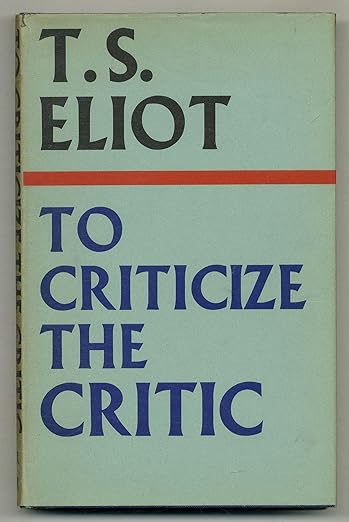Navigating the Nuances: A Self-Reflective Guide on ‘Critique vs Criticize’

Dear Younger Me,
As you embark on your journey through the intricate world of feedback, I want to share with you a piece of wisdom that I wish I had grasped earlier. It’s about the subtle, yet profound difference between ‘critique’ and ‘criticize’. These terms, often tossed around as if they were twins, are more like distant cousins, each with its place and purpose.
When you critique, you’re not just looking through a lens to find faults; you’re also acknowledging the brilliance before you. It’s a balanced dance between praise and suggestion, where your objective is to build, not break. Remember, a true critique is a gift wrapped in honesty and tied with the ribbon of respect.
On the other hand, when you criticize, tread carefully. It’s easy to let the scales tip and have your words weigh heavily on someone’s spirit. Criticism, while necessary, can sting if not delivered with care. It’s not just about pointing out what’s wrong; it’s about being mindful of the impact your words carry.
So, as you wield the power of your words, choose them with intention. Let your critiques be constructive and your criticisms be kind. In doing so, you’ll not only help others grow but also earn the respect and appreciation that comes from being a thoughtful communicator.
With this knowledge, go forth and use your insights to nurture, not just to judge. Your future self will thank you for it.
Understanding the Differences
The terms “critique” and “criticize” are often used interchangeably, but they have distinct meanings and connotations. Understanding the differences between these terms can help in effectively communicating feedback.
Definitions and Connotations
Critique
- Verb/Noun: The term “critique” can function as both a verb and a noun.
- Meaning: To critique something means to evaluate and analyze it, identifying both its strengths and weaknesses. It involves a balanced assessment that considers both positive and negative aspects.
- Connotation: Critiquing is generally seen as constructive and objective. It aims to provide helpful feedback that can lead to improvement.
- Usage: Commonly used in contexts such as art, literature, and performance reviews, where a detailed and balanced evaluation is required[2][3][4].
Criticize
- Verb: “Criticize” is primarily used as a verb.
- Meaning: To criticize something means to point out its faults or negative aspects. It focuses on identifying what is wrong or lacking.
- Connotation: Criticizing is often perceived as negative and judgmental. It can be seen as an attack on the subject being criticized.
- Usage: Used in various contexts, often when the intent is to highlight problems or deficiencies[2][3][4].
Key Differences
Intent and Tone
- Critique: The intent behind a critique is to offer constructive feedback that can help improve the subject. The tone is usually kind, honest, and objective[4][5][6].
- Criticize: The intent behind criticism is often to highlight faults, and the tone can be harsh, judgmental, and sometimes sarcastic[4][5][6].
Focus
- Critique: Focuses on the work or subject itself, not the person who created it. It looks at both what is working and what is not[4][5][7].
- Criticize: Can sometimes focus on the person as well as the work, making it more personal and potentially hurtful. It primarily looks for flaws[4][5][7].
Specificity
- Critique: Provides specific, detailed feedback that is actionable. It often includes suggestions for improvement[4][5].
- Criticize: Can be vague and general, often lacking in specific guidance for improvement[4][5].
Examples
Critique
- Example: “The plot of the novel is engaging, but the character development could be deeper. Consider adding more background to the protagonist to make their motivations clearer.”
- Context: This type of feedback is balanced, offering both praise and constructive suggestions.
Criticize
- Example: “The novel is poorly written and the characters are flat.”
- Context: This feedback is negative and does not provide specific guidance on how to improve.
Conclusion
While both critique and criticism involve evaluating something, the key difference lies in their intent, tone, focus, and specificity. Critiquing is constructive and balanced, aimed at helping improve the subject, whereas criticizing is often negative and judgmental, focusing on faults without necessarily providing constructive feedback. Understanding these differences can help in delivering more effective and supportive feedback.
Image by Markus Winkler from Pixabay

Step into the mind of a literary giant with T.S. Eliot’s “To Criticize the Critic and Other Writings.” A collection that spans half a century of profound essays and lectures, this hardcover edition illuminates the evolution of Eliot’s thought and artistry. Rated 4.1 stars by readers and critics alike, it’s a must-have for enthusiasts of classic literature and critical analysis.
Dive into the pages where the luminosity and clarity of Eliot’s intellect shine through. Get your copy today!
Citations:
[1] http://www.godlywriters.com/critiquing-versus-criticism/
[2] https://www.espressoenglish.net/difference-between-criticize-criticism-critique-critic-and-critical/
[3] https://www.reddit.com/r/EnglishLearning/comments/17j3jtd/critique_or_criticize/
[4] http://abacus.bates.edu/~rrichar2/learn/ui/critique.html
[5] https://www.iacet.org/news/iacet-blog/blog-articles/critique-but-dont-criticize/
[6] https://www.linkedin.com/pulse/criticism-vs-critique-marco-romano
[7] https://owenfitzpatrick.com/blog/the-difference-between-criticizing-and-critiquing/
[8] https://www.theparentingjunkie.com/criticism-vs-critique/
[9] https://www.spectator.co.uk/article/critical-thinking-the-difference-between-critique-and-criticise/
[10] https://www.scribophile.com/academy/how-to-write-a-great-critique
[11] https://style.mla.org/critique-versus-criticize/


